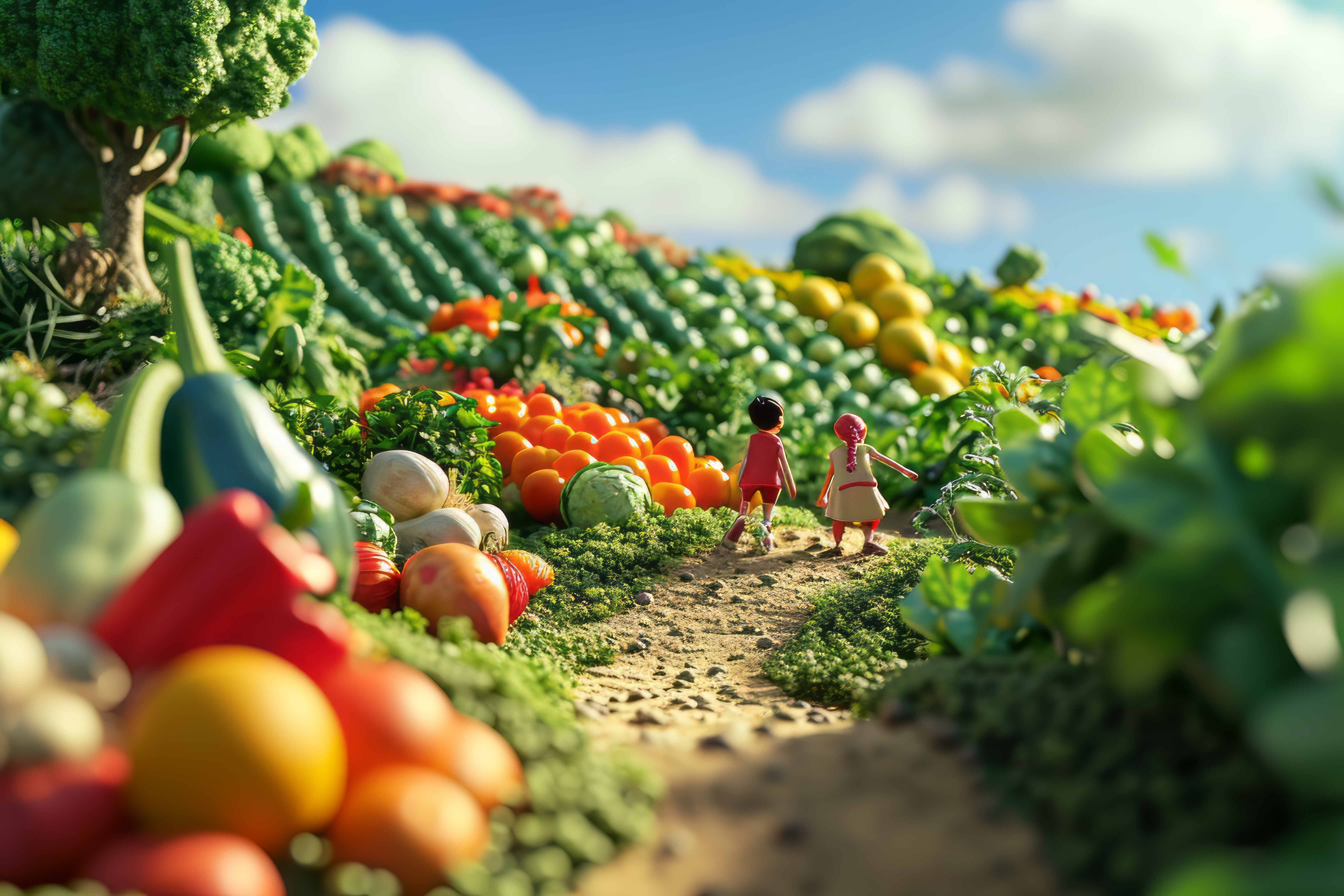Terras Vegetable Farm Project
Terras Vegetable Farm Project: A Detailed Description
Overview: The Terras Vegetable Farm Project is an initiative that embraces organic farming practices to cultivate vegetables sustainably and naturally. The project is rooted in principles that prioritize environmental health, soil fertility, and the production of high-quality, chemical-free vegetables. By adhering to organic farming methods, the farm aims to produce nutritious vegetables while maintaining the ecological balance and promoting biodiversity.
Organic Farming Techniques:
Vermicomposting:
- Process: Vermicomposting is the process of using earthworms to convert organic waste into high-quality compost. The farm uses kitchen waste, crop residues, and other biodegradable materials to create vermicompost, which is rich in essential nutrients like nitrogen, phosphorus, and potassium.
- Benefits: Vermicompost improves soil structure, enhances water retention, and promotes the growth of healthy plants by providing essential nutrients naturally.
Green Leaf Manures:
- Usage: The farm utilizes green leaf manures, which involve the incorporation of green plant material into the soil. These plants, often leguminous, are grown specifically for this purpose and are rich in nitrogen.
- Benefits: Green leaf manuring helps in replenishing the soil with organic matter, improving soil fertility, and enhancing microbial activity. It also helps in nitrogen fixation, making nutrients readily available for the crops.
Crop Rotation:
- Practice: Crop rotation is a planned sequence of planting different types of crops in the same area across seasons. The Terras Vegetable Farm employs this practice to prevent soil depletion and to disrupt the lifecycle of pests and diseases.
- Benefits: Crop rotation helps maintain soil health, reduces the need for chemical fertilizers, and minimizes the risk of pest and disease infestations. It also improves crop yields by enhancing soil fertility.
Animal Manure as Fertilizer:
- Application: The farm uses well-composted animal manure as a natural fertilizer. This manure, rich in organic matter, is applied to the soil to enhance its fertility and promote healthy plant growth.
- Benefits: Animal manure provides a balanced supply of nutrients, improves soil structure, and supports the growth of beneficial microorganisms in the soil. It also helps in recycling nutrients within the farm ecosystem.
Biofertilizers:
- Introduction: Biofertilizers are substances containing living microorganisms that, when applied to seeds or soil, promote plant growth by increasing the availability of essential nutrients.
- Types Used: The farm uses various biofertilizers, including Rhizobium, Azotobacter, and mycorrhizal fungi, which help in nitrogen fixation, phosphorus solubilization, and improving soil health.
- Benefits: Biofertilizers reduce the need for synthetic fertilizers, improve soil fertility, and support sustainable farming practices by promoting healthy plant growth through natural processes.
Biological Management Techniques:
- Pest and Disease Control: The farm employs biological pest management techniques, including the use of natural predators, beneficial insects, and plant-based repellents to control pests and diseases without the use of chemical pesticides.
- Soil Health Management: Regular soil testing and the application of organic amendments, such as compost and biofertilizers, ensure that the soil remains fertile and supports the growth of healthy crops.
- Water Conservation: The farm implements water-efficient irrigation techniques, such as drip irrigation, to minimize water usage and prevent soil erosion.
Environmental Impact: The Terras Vegetable Farm Project is committed to minimizing its environmental footprint by avoiding synthetic chemicals and focusing on sustainable farming practices. The use of organic methods helps in preserving soil health, reducing pollution, and promoting biodiversity. The project also contributes to carbon sequestration through the increased organic matter in the soil.
Economic and Social Impact:
- Profitability: Organic farming can be economically viable due to the growing demand for organic produce. The farm aims to tap into this market by offering high-quality, chemical-free vegetables.
- Community Engagement: The project involves local communities in the farming process, providing education and training on organic farming techniques. This not only empowers local farmers but also promotes the adoption of sustainable practices in the region.
Challenges:
- Pest and Disease Management: While the farm uses biological methods for pest control, managing pests and diseases organically can be challenging and may require constant monitoring and adaptation.
- Market Competition: Competing with conventional farming practices, which may offer lower-priced produce, presents a challenge. However, the farm's focus on quality and sustainability helps differentiate its products.
Future Directions:
- Expansion: The Terras Vegetable Farm Project plans to expand its operations by introducing more varieties of vegetables and exploring new markets for organic produce.
- Research and Development: The farm is committed to continuous improvement by researching innovative organic farming techniques and adopting new practices that enhance productivity and sustainability.
- Certification: Obtaining organic certification is a goal for the project, which will help in building consumer trust and opening up new market opportunities.
The Terras Vegetable Farm Project represents a commitment to sustainable agriculture, providing a model for organic farming that respects the environment, supports local communities, and delivers high-quality produce to consumers.
